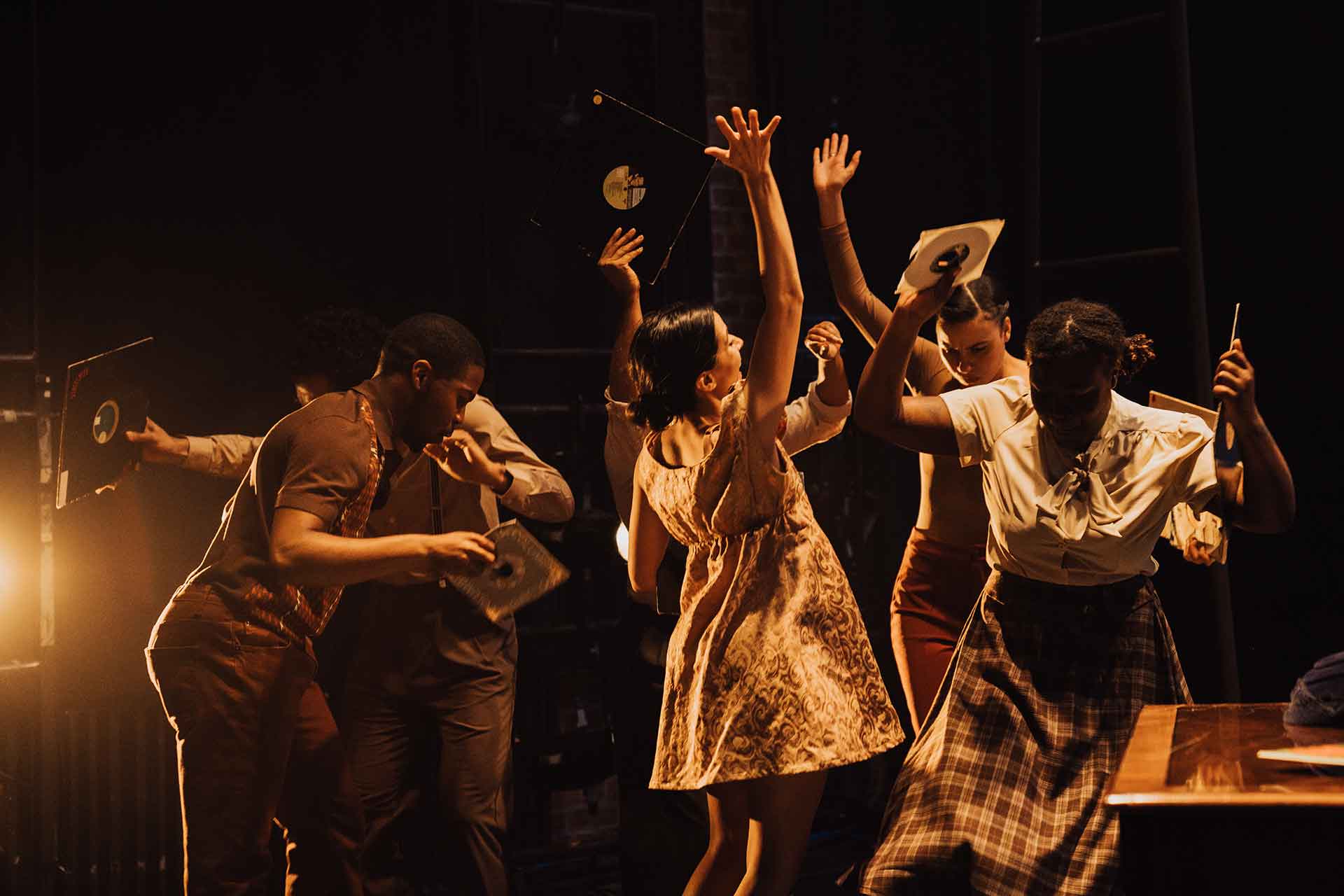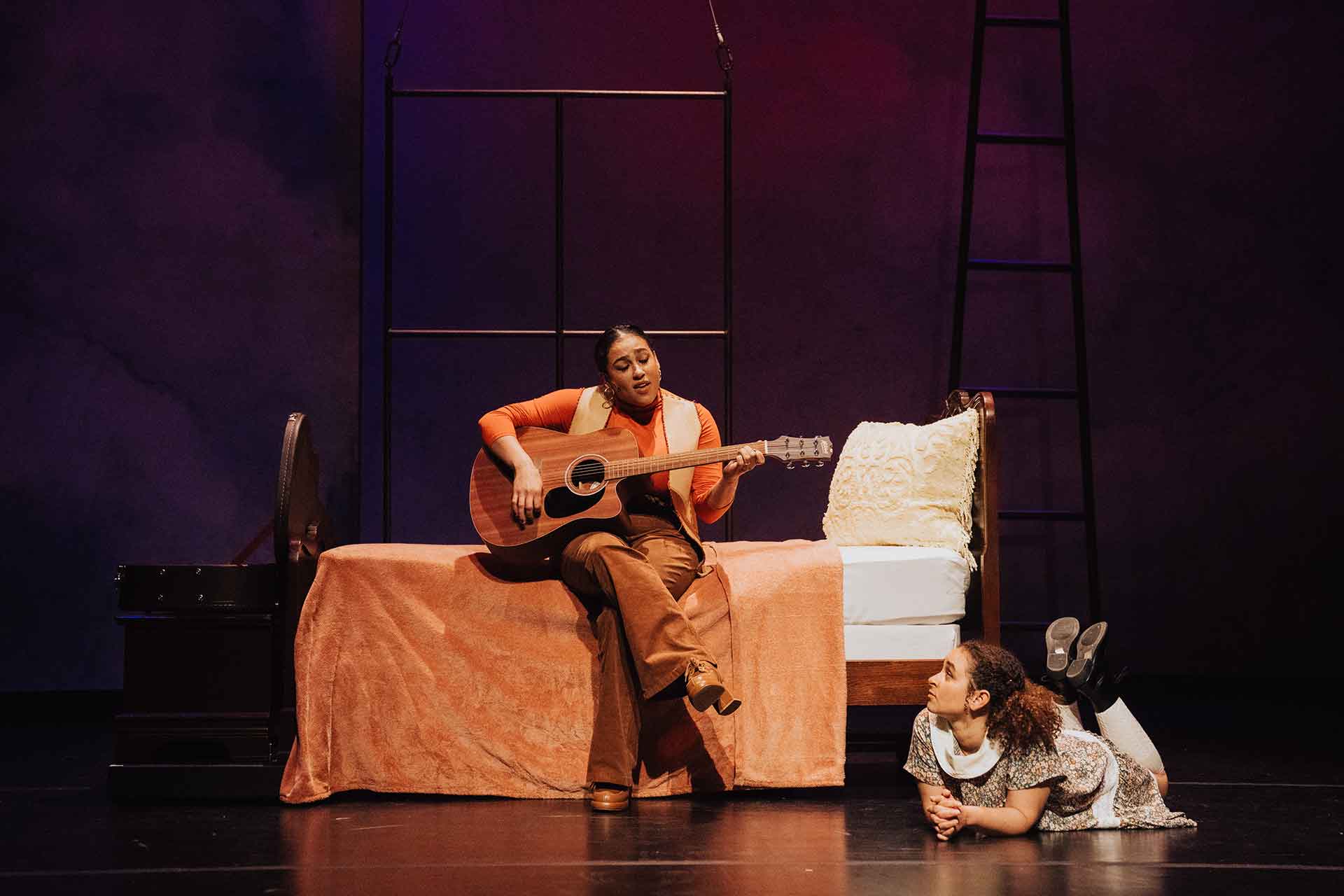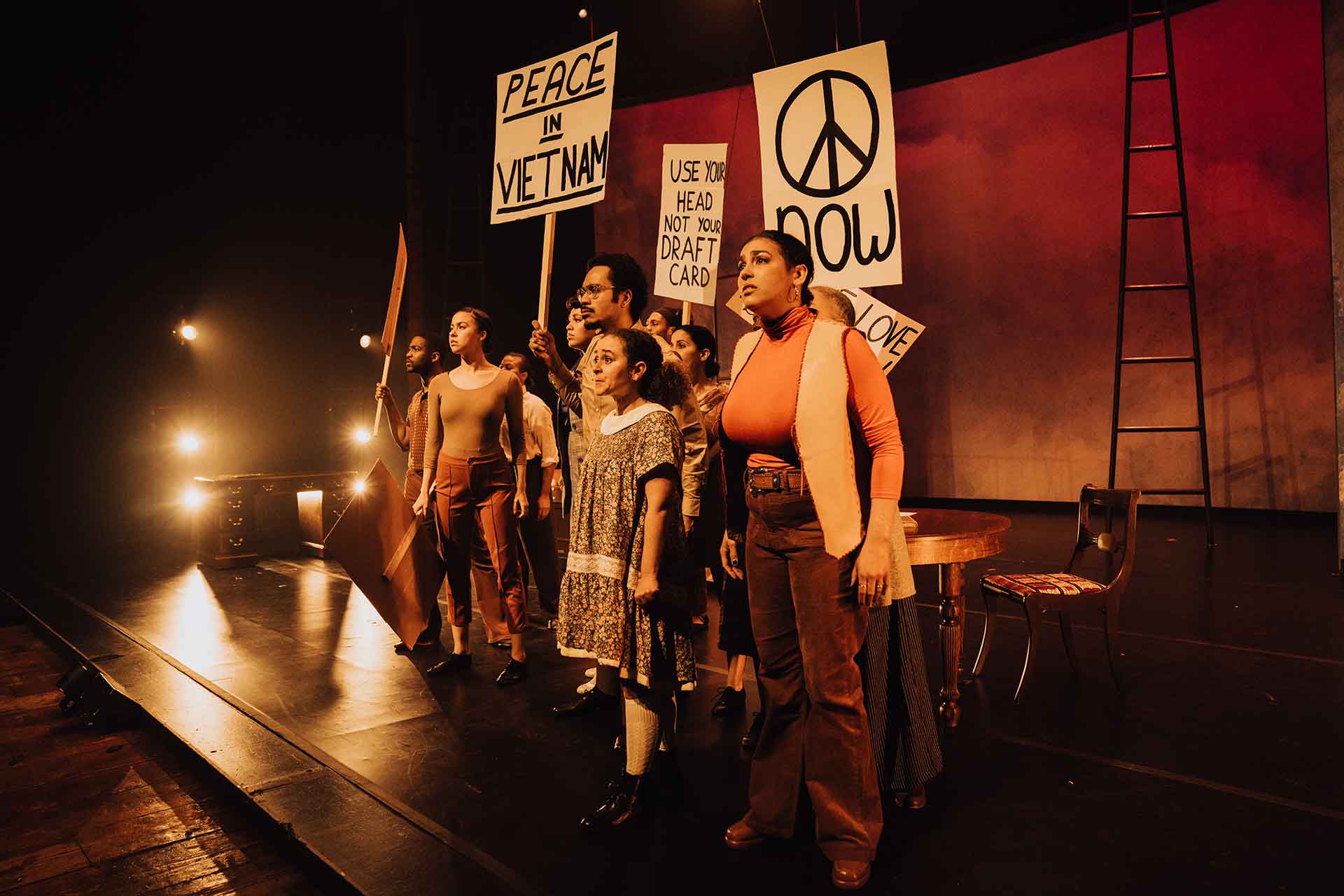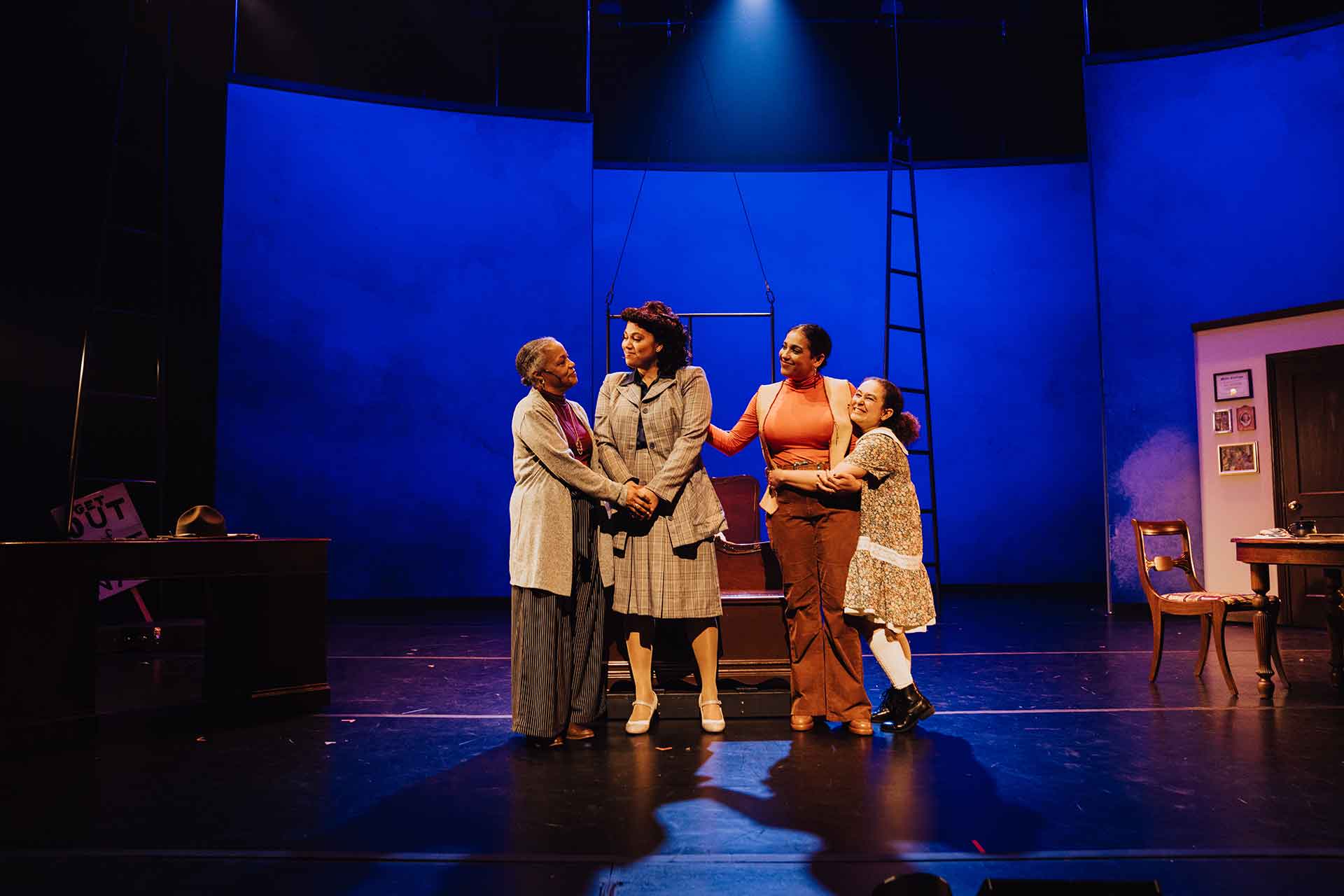
Not one, not two, but four different Betty Reid Soskins take the stage in Sign My Name to Freedom, the world-premiere play that opened in San Francisco Friday night. And honestly, four still seems inadequate for its fascinating, multifaceted subject.
As this excellent and affecting production demonstrates, Betty Reid Soskin, the woman best known as a park ranger at Richmond’s Rosie the Riveter National Historic Park, has lived at least a dozen lives, if not more. Hers is a quintessentially Bay Area story, encompassing the Great Migration, grassroots arts and political activism, experiences of thinly veiled liberal racism, the independent hustle, the trap of the suburbs, dancing the pain away and, yes, doom-loop crime.
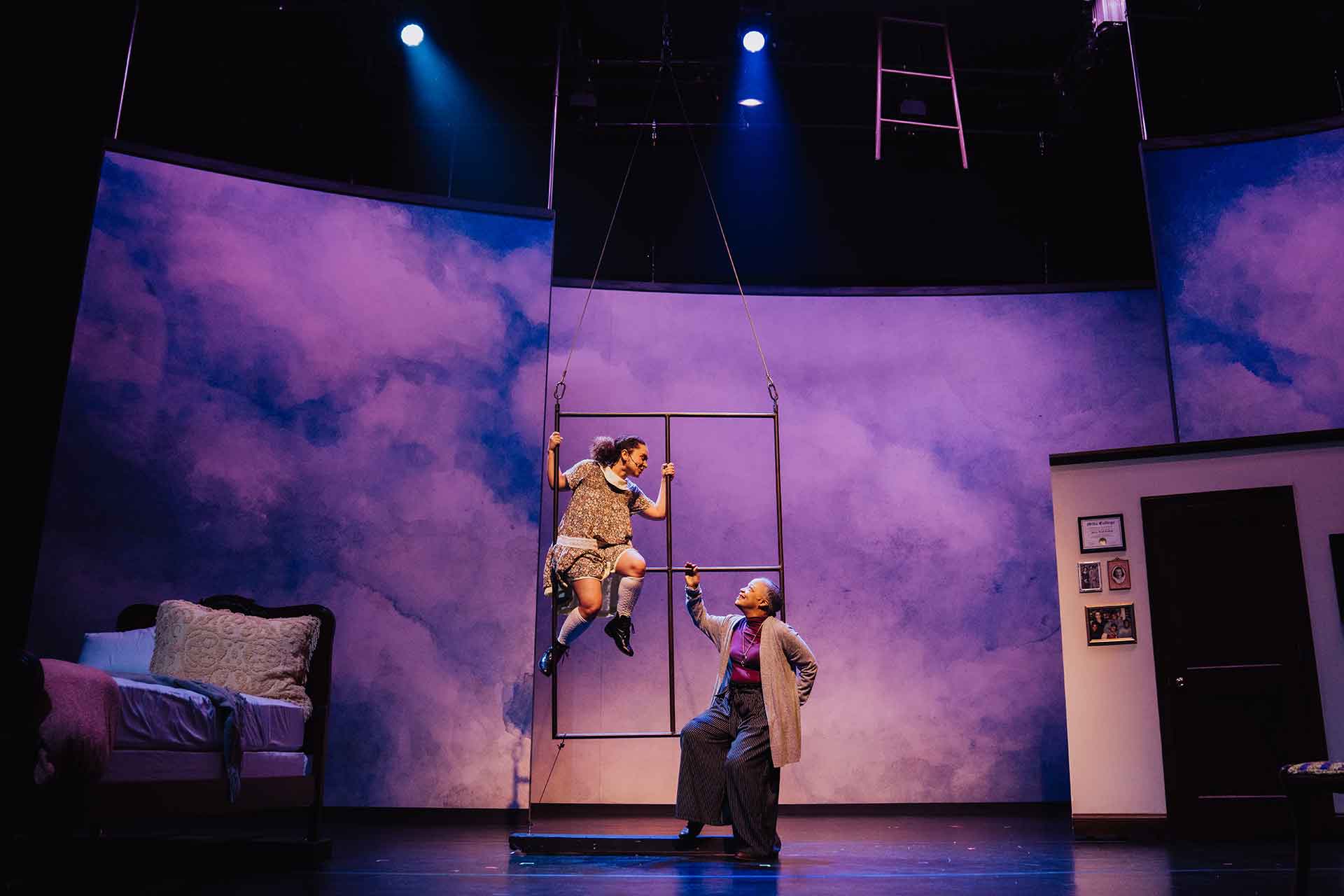
The play opens with a robber breaking into the modest apartment of Soskin (Cathleen Riddley) who, at 95 years of age, adroitly fends him off. Her stocktaking of stolen items with her fellow park ranger friend Renee (Jasmine Milan Williams) turns into an inventory of her life. Soon, Little Betty (Tierra Allen) shows up for a reenactment, replete with billowy blue fabric and aerial dancers, of the hurricane of 1927 that blew Soskin’s family all the way from New Orleans to Oakland.
Little Betty and older Betty begin talking, in awe of each other: Little Betty for the places she’ll go, and older Betty for where she’s been. Throughout the mostly chronological telling of Soskin’s life, playing out like a beautifully written memoir on the stage, we meet two more Soskins. There’s Married Betty, who overcomes constant challenges, and, occupying much of Act Two, the songwriting, speech-delivering Revolutionary Betty.
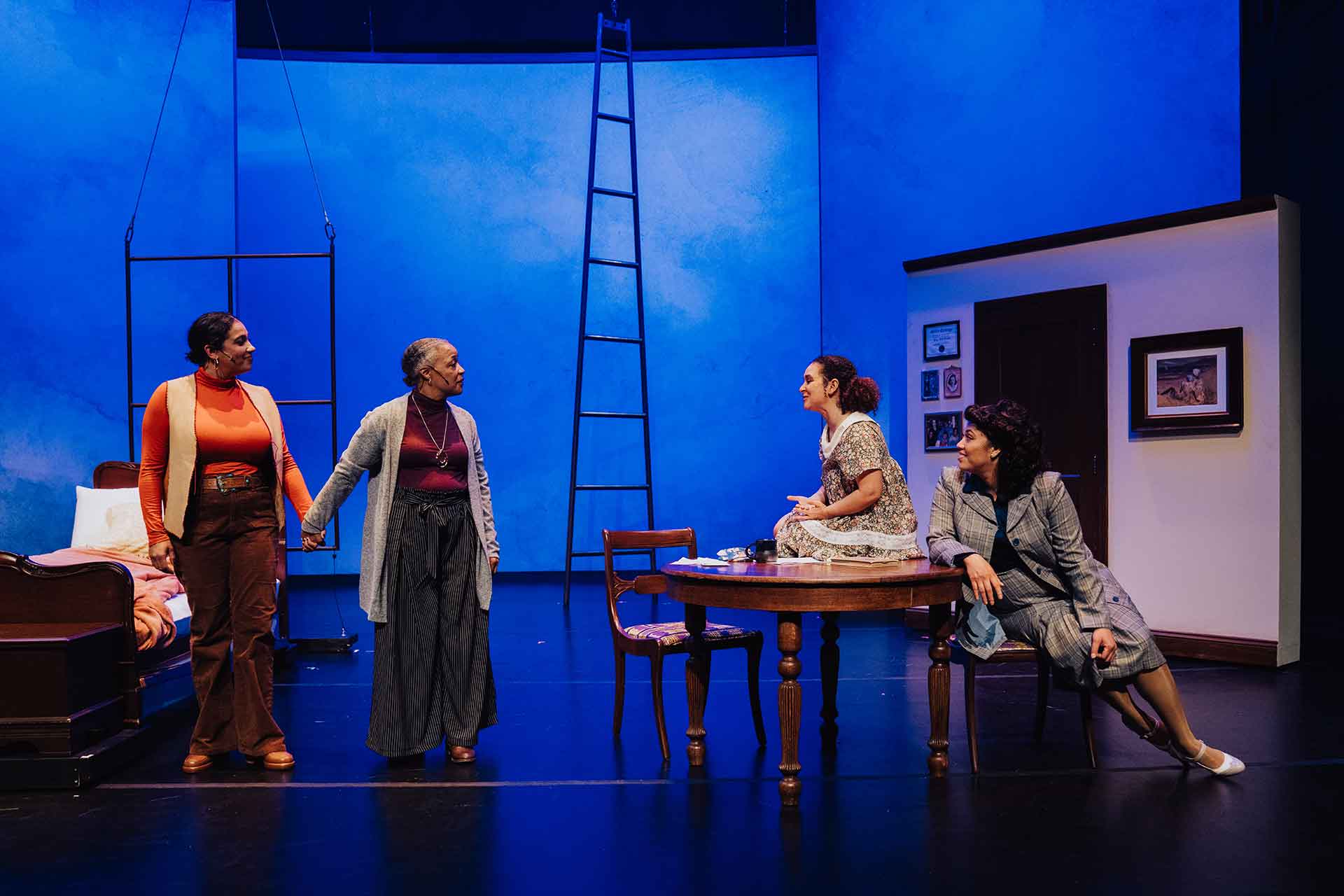
It’s an achievement by playwright Michael Gene Sullivan and director Elizabeth Carter that this approach doesn’t get too crowded, or confuse the audience. By the end of the play, when these four Bettys have told Soskin’s remarkable story, their group conversation arrives at a mutual understanding of a life and what it’s lived for. Sullivan’s dialogue is smart but not showy, thoughtfully considered and frequently very funny.
